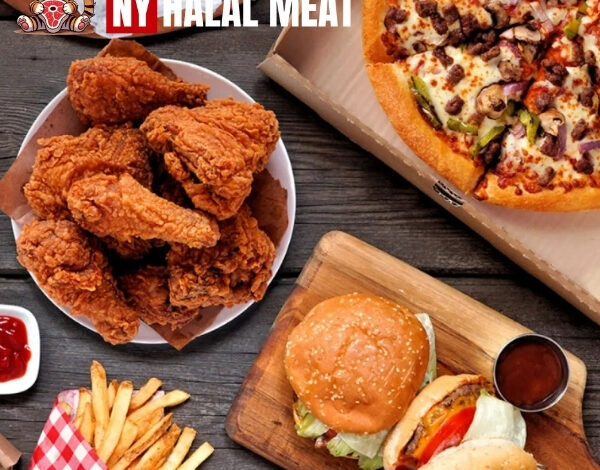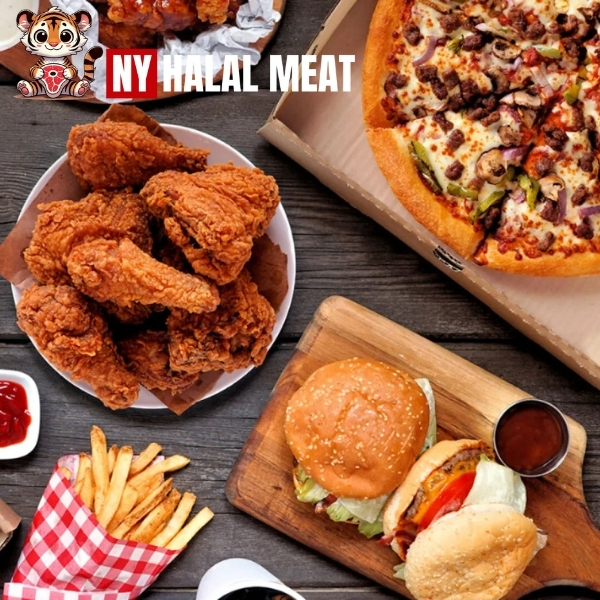
Is It Acceptable to Eat Halal Fast Food?
In today’s fast-paced world, many people choose fast food for its convenience, especially when they need a quick meal. For individuals who follow halal dietary guidelines, a common question arises: Is it acceptable to eat halal fast food? This article will delve into the concept of halal food, the growth of halal fast food options, and the factors to consider when making a decision to eat halal fast food.
What Is Halal Food?
Halal, meaning “permissible” in Arabic, refers to foods and drinks that are allowed under Islamic law. The guidelines for halal food are rooted in religious texts, primarily the Quran and Hadith. For food to be halal, it must be prepared according to strict principles. This includes ensuring that the food is free from any prohibited ingredients such as pork or alcohol, and the animal from which the food is sourced must be slaughtered according to specific methods. Halal food is not just about avoiding pork; it also requires attention to ethical considerations in sourcing, handling, and preparation.
The Growing Availability of Halal Fast Food
In recent years, halal fast food options have become more widespread, especially in regions with large Muslim communities. Fast food chains and independent restaurants are increasingly offering halal-certified meals. This makes it more convenient for Muslims to enjoy the ease of fast food while adhering to their dietary needs.
Is It Acceptable to Eat Halal Fast Food?
The answer to this question largely depends on several key factors:
1. Halal Certification
The first thing to look for when choosing halal fast food is halal certification. This certification ensures that the food has been prepared in accordance with Islamic dietary laws. Many fast food chains, particularly in areas with large Muslim populations, have made efforts to ensure that their food meets these requirements. This includes sourcing meat from certified halal suppliers and ensuring that there are no non-halal ingredients used during the preparation.
2. Risk of Cross-Contamination
A concern with halal fast food is the potential for cross-contamination. Even if the food is halal, there could be a risk that it comes into contact with non-halal ingredients during cooking or preparation. Cross-contamination can occur if the same utensils, cooking equipment, or preparation surfaces are used for both halal and non-halal food items. Restaurants that are serious about serving halal food typically have strict protocols in place to prevent this from happening. If you are unsure, ask the restaurant about their practices to ensure the food is properly segregated.
3. Ingredients and Additives
Another consideration when consuming fast food is the presence of non-halal ingredients or additives. Some fast food items may contain flavorings, preservatives, or sauces that are derived from non-halal sources. For example, some sauces may contain alcohol-based flavorings, or certain additives may come from animal by-products like gelatin, which may not be halal. It’s always a good idea to check the ingredients list or ask the restaurant staff to confirm that their menu items are fully halal.
4. Health Implications
While halal fast food may meet religious dietary guidelines, it’s important to consider the health implications of consuming fast food regularly. Fast food is often high in unhealthy fats, sugars, and sodium. Although halal fast food is an option for those following a halal lifestyle, consuming it in moderation is essential for maintaining a healthy diet. It’s always best to balance fast food with other nutritious options.
5. Ethical and Environmental Concerns
Many individuals choose halal food not only for religious reasons but also for ethical considerations. Halal slaughter methods, as outlined by Islamic guidelines, emphasize humane treatment of animals, ensuring that animals are slaughtered in a way that minimizes suffering. Additionally, halal food producers are often more conscious about sourcing food responsibly and sustainably. Choosing halal fast food that follows ethical practices aligns with both personal and environmental values.
Conclusion

In conclusion, it is generally acceptable to eat halal fast food, provided that the food meets the necessary halal standards. This includes ensuring that the food is halal certified and is free from cross-contamination with non-halal ingredients. As the demand for halal food increases, more fast food chains are offering halal options to accommodate the needs of Muslim consumers. However, it is important to be mindful of the overall health, ethical, and environmental aspects of the food you choose to eat. By making informed decisions and asking questions when necessary, you can enjoy halal fast food as part of a balanced diet while adhering to your beliefs.





